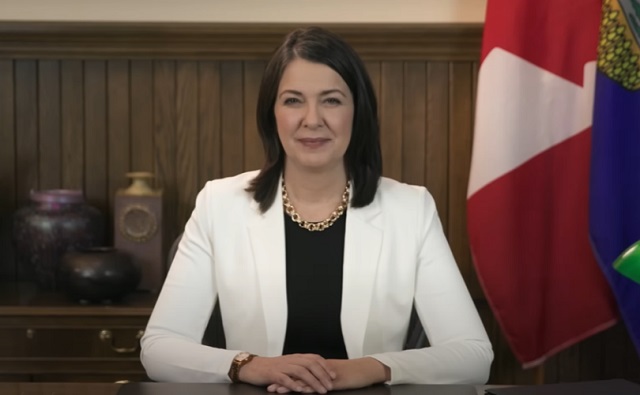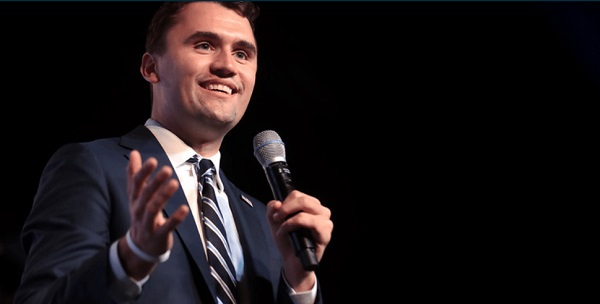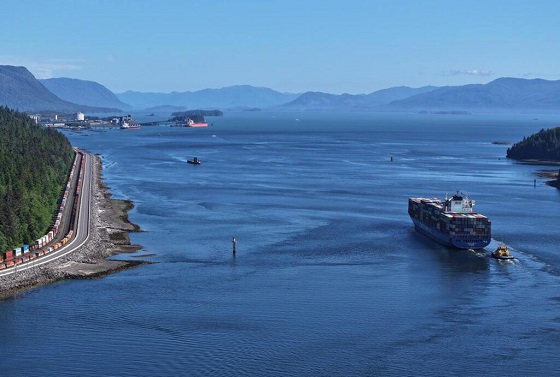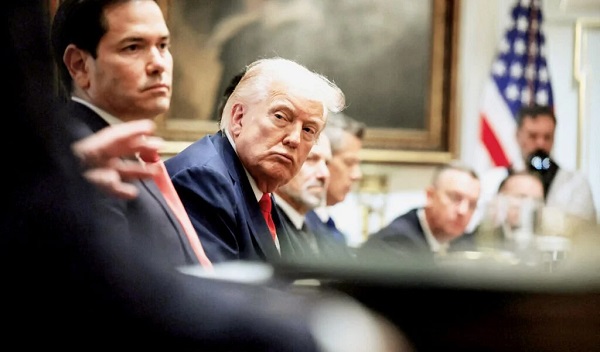Alberta
Alberta looking to ban electronic vote tabulators ahead of next provincial election

From LifeSiteNews
electronic voting tabulators, which were supposed to speed up vote counting, instead saw election results delayed due with workers having to manually enter the results that each tabulator printed out.
The conservative Premier of Alberta, Danielle Smith, has confirmed she is looking to ban the use of electronic vote tabulators in future provincial elections after issues with them in the 2023 election saw massive delays in the tallying of votes.
Smith, according to a report from True North, while speaking to a United Conservative Party (UCP) fundraiser on January 26 in the community of Bonnyville was asked if she would “end the use of voting tabulators across the province?”
Smith replied with a firm “yes.”
The 2023 Alberta provincial elections held in May saw Smith and her UCP win a majority, although a slim one, over the left-wing Alberta New Democratic Party (NDP).
Elections Alberta used what is called a Vote Anywhere Service, which allowed anyone to vote at any voting place regardless of which riding (jurisdiction) they were actually voting in. While paper ballots were used for the election, electronic tabulators were used to count the votes from all hand ballots. A form was then printed out with the result of each riding from the tabulators count of the hand ballots.
However, the electronic voting tabulators, which were supposed to speed up vote counting, instead saw election results delayed due with workers having to manually enter the results that each tabulator printed out.
Elections Alberta noted in June 2023, per True North, that “[w]e did not use any electronic data transfer from the tabulators, as the tabulators used for advance voting were never connected to a network at any time.”
“As a result, it was a manual process to verify and enter these results.”
Many in the UCP have long called for the return of hand counting, as is done in Canada’s federal elections.
As for Smith, before the 2023 election, she noted that she was confident in Elections Alberta’s plan to use electronic tabulators, as “we have the ability to do a hand count as a follow up in the event there are close results, I believe that’s going to be sufficient.”
“That’s, I think, something that people expect in democracy – that you should be able to verify a vote if results end up very close,” she added.
Elections Alberta, however, has pushed back on returning to hand counting ballots, saying it would increase the manual workload of employees.
There were many close results on election night, with the NDP losing a few seats by only a handful of votes in some Calgary ridings.
Smith gave no timeline as to how or when she would make the change.
Many large municipalities in Alberta, including the province’s two biggest cities, Calgary and Edmonton, use electronic tabulators for ballot counting.
Issues surrounding electronic voting machines as well as tabulators came to a head in the aftermath of the 2020 U.S. presidential election, which saw Joe Biden declared the winner over Donald Trump.
A report published by LifeSiteNews last year documented how a computer programmer, Clinton Eugene Curtis, who had previously testified to Congress on the integrity of voting machines, warned lawmakers in Arizona to never trust them.
“Don’t use machines, because you can never, ever trust them to give you a fair election,” said Curtis.
“There are too many ways to hack them. You can hack them at the level that I did when you first build them, you can hack them from the outside, you can hack them with programs that load themselves on the side. It’s impossible to secure them. You will never beat the programmer. The programmer always owns the universe.”
Of note is that Curtis is a Democrat who had worked as a programmer for NASA, as well as the Department of Defense and other government agencies.
Alberta
Diploma Exams Affected: No school Monday as ATA rejects offer of enhanced mediation

Premier Danielle Smith, Minister of Finance Nate Horner, and Minister of Education Demetrios Nicolaides issued the following statement.
“Yesterday, the Provincial Bargaining and Compensation Office wrote to the Alberta Teachers’ Association (ATA) and formally requested an agreement to enter an enhanced mediation process.
“This process would have ensured that students returned to the classrooms on Monday, and that teachers returned to work.
“Negotiating would have continued with the ATA, Teachers’ Employer Bargaining Association (TEBA) and a third-party mediator to propose a recommended agreement.
“We are very disappointed that the Alberta Teachers’ Association refused this offer. Teachers and students should also be disappointed.
“PBCO made this offer to the ATA because the union has not made a reasonable offer and this strike is impacting students. Alberta’s government is trying to put kids first and bring an end to this strike.
“The offer of enhanced mediation provided a clear path to ending it.
“We want the same things as the ATA: More teachers. More pay for teachers. More educational assistants. And more classrooms.
“This strike has gone on too long and we are extremely concerned about the impact it is having on students.
“We are willing to consider further options to ensure that our next generation gets the world-class education they deserve. After about three weeks, a strike of this nature would reach the threshold of causing irreparable harm to our students’ education.
“The ATA needs to do what is right for its members, and for all Alberta students.
“If it refuses to do so, we will consider further options to bring this strike to an end.”
Diploma exam update
November diploma exams will be optional for students.
With instructional time in schools disrupted due to the teacher strike, the November 2025 diploma exams will now be optional for students. Students who wish to write a diploma exam may request to do so, and their school boards will accommodate the request.
The optional diploma exams apply to all schools provincewide. These exams will still take place on the currently scheduled dates.
Students who choose not to write the November diploma exams can still complete their courses and graduate on time. Their final grade will be based entirely on the school-awarded mark provided by their teacher.
Choosing not to write the November diploma exams will not affect a student’s ability to apply to, be accepted by, or attend post-secondary institutions after graduation.
No changes have been made to the January and June diplomas and provincial achievement tests.
Quick facts
- Students are automatically exempted from writing the November diploma exams but can request to write them.
- School boards must allow the student to write the diploma exam if requested.
Alberta
Alberta taxpayers should know how much their municipal governments spend

From the Fraser Institute
By Tegan Hill and Austin Thompson
Next week, voters across Alberta will go to the polls to elect their local governments. Of course, while the issues vary depending on the city, town or district, all municipal governments spend taxpayer money.
And according to a recent study, Grande Prairie County and Red Deer County were among Alberta’s highest-spending municipalities (on a per-person basis) in 2023 (the latest year of comparable data). Kara Westerlund, president of the Rural Municipalities of Alberta, said that’s no surprise—arguing that it’s expensive to serve a small number of residents spread over large areas.
That challenge is real. In rural areas, fewer people share the cost of roads, parks and emergency services. But high spending isn’t inevitable. Some rural municipalities managed to spend far less, demonstrating that local choices about what services to provide, and how to deliver them, matter.
Consider the contrast in spending levels among rural counties. In 2023, Grande Prairie County and Red Deer County spent $5,413 and $4,619 per person, respectively. Foothills County, by comparison, spent just $2,570 per person. All three counties have relatively low population densities (fewer than seven residents per square kilometre) yet their per-person spending varies widely. (In case you’re wondering, Calgary spent $3,144 and Edmonton spent $3,241.)
Some of that variation reflects differences in the cost of similar services. For example, all three counties provide fire protection but in 2023 this service cost $56.95 per person in Grande Prairie County, $38.51 in Red Deer County and $10.32 in Foothills County. Other spending differences reflect not just how much is spent, but whether a service is offered at all. For instance, in 2023 Grande Prairie County recorded $46,283 in daycare spending, while Red Deer County and Foothills County had none.
Put simply, population density alone simply doesn’t explain why some municipalities spend more than others. Much depends on the choices municipal governments make and how efficiently they deliver services.
Westerlund also dismissed comparisons showing that some counties spend more per person than nearby towns and cities, calling them “apples to oranges.” It’s true that rural municipalities and cities differ—but that doesn’t make comparisons meaningless. After all, whether apples are a good deal depends on the price of other fruit, and a savvy shopper might switch to oranges if they offer better value. In the same way, comparing municipal spending—across all types of communities—helps Albertans judge whether they get good value for their tax dollars.
Every municipality offers a different mix of services and those choices come with different price tags. Consider three nearby municipalities: in 2023, Rockyview County spent $3,419 per person, Calgary spent $3,144 and Airdrie spent $2,187. These differences reflect real trade-offs in the scope, quality and cost of local services. Albertans should decide for themselves which mix of local services best suits their needs—but they can’t do that without clear data on what those services actually cost.
A big municipal tax bill isn’t an inevitable consequence of rural living. How much gets spent in each Alberta municipality depends greatly on the choices made by the mayors, reeves and councillors Albertans will elect next week. And for Albertans to determine whether or not they get good value for their local tax dollars, they must know how much their municipality is spending.
-

 Red Deer1 day ago
Red Deer1 day agoThe City of Red Deer’s Financial Troubles: Here Are The Candidates I Am Voting For And Why.
-

 Business11 hours ago
Business11 hours agoUN, Gates Foundation push for digital ID across 50 nations by 2028
-

 COVID-1912 hours ago
COVID-1912 hours agoThe Trials of Liberty: What the Truckers Taught Canada About Power and Protest
-

 C2C Journal11 hours ago
C2C Journal11 hours agoCharlie Kirk and the Fragility of Civic Peace
-

 Business2 days ago
Business2 days agoCutting Red Tape Could Help Solve Canada’s Doctor Crisis
-

 espionage1 day ago
espionage1 day agoPEI to Ottawa: Investigate CCP Footprints—Now
-

 Energy2 days ago
Energy2 days agoPrince Rupert as the Optimal Destination Port for an Alberta Crude Oil Pipeline –
-

 Bruce Dowbiggin2 days ago
Bruce Dowbiggin2 days agoBrokeback President: We Can’t Quit You, Donald





